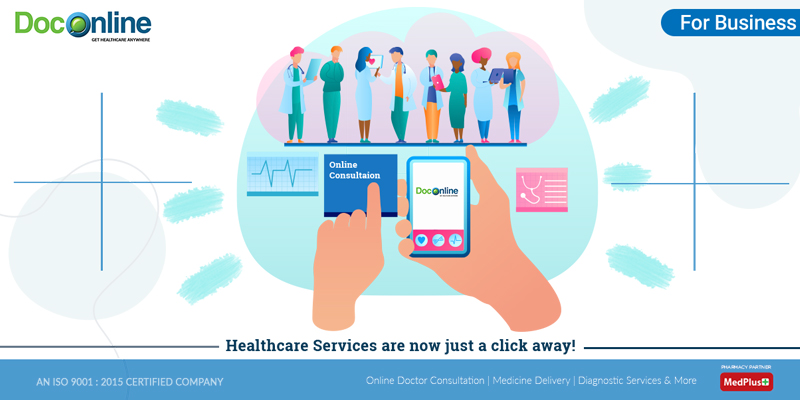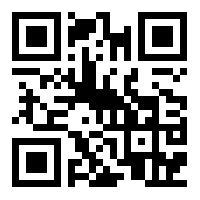With 462 million active internet users and 430 million active mobile internet users in India, the scope for ehealth services and solutions can prove to be a game changer in the patient care space. And in the current urban milieu where internet access is far higher than the national average; the number of potential consumers especially from the corporate sector, provides an untapped opportunity for healthcare providers to pilot, facilitate, regulate, and expand the span of preventive medicine, primary health care, and wellness programs beyond conventional boundaries.
To quote Sai Prasad Chakilam, Chief Technology Officer, DocOnline, “Innovative measures are being taken across the globe towards the improvement of health information technology connectivity in the public domain. Coinciding with the momentum towards the third wave of digitization, public health administrators are initiating an interesting and eclectic mix of multi-channel healthcare services to maximize care delivery for consumers.
Real-time platforms like telemedicine, tele-consultation, video-conferencing, remote patient monitoring, Medical Record Systems (MCRs) are facilitating better healthcare delivery systems. Trends such as bring-your-own-device (BYOD) and bring-your-own-application (BYOA) are also being integrated to enable better patient: doctor digital engagements. Other emerging interventions like store-and-forward technologies, remotely-hosted deployments, predictive analytics, Health Information Exchanges (HIEs), Early Warning Scores (EWS), Fast Healthcare Interoperability Resources (FHIR) can further provide optimal health-care connected solutions. Whether it is for individuals or the corporates, the presence of online doctor consultation platforms are benefitting employees
Countries like the UK, Germany, Netherlands, etc., which have highly evolved healthcare infrastructure have introduced several informatics applications to provide better health resources for citizens. These next-generation digitization initiatives include electronic health records, electronic prescribing, smart monitoring solutions and document management to name a few.”
“Private healthcare corporates and NGOs are also making major inroads towards offering services that enable easier online access and more responsive health-care services to a growing number of users. There is a paradigm-shift from provider-centered to patient-centered healthcare”, he further added.
Patient-centric Value Services
Led by Raj Panjabi, CEO, Last Mile Health staff use smartphones to collect data about their work with the sickly in Liberia. These statistics helps identify health trends and improve their medical services across the country. Closer home, multi-speciality hospitals like Apollo, AIIMS, Narayana Hrudayalaya have adopted value added medical service offerings like telemedicine, doctor appointments, video consultations, etc.
Increasingly, consumers are being empowered to use different hand-held devices like phone, tab and PC to securely access their medical records anywhere anytime, find preventive information, compare services offered by different players, purchase medicines, book appointments, use symptom checkers and get health checks, store medical history in health vaults, and efficiently and seamlessly consult with doctors.
Government Initiatives
With an increasing focus on “Digital India”, Ministry of Health and Family Welfare (MoHFW), Government of India (GoI) has instituted various e-Gov initiatives in Health care sectors in the country. The eHealth division is focused on the use of Information and Communication Technology (ICT) in health.
'Electronic Health Record Standards for India' have been finalised and approved by MoHFW. Government-supported, cloud-based e-health cards, mobile apps, vaccination alerts, medicine monitoring, education tools, etc. are being offered to the public.
Various programs are focused on making the entire spectrum of medical facilities available 24*7 through web, mobile, SMS and Call center services. The spectrum of these online interventions encompasses medical consultation, medical records, medicine supply management and Pan-India exchange of patient information.
Some of the expected outcomes are delivery of better medical amenities in terms of equitable access, quality, affordability, lowering of disease burden, and efficient monitoring of health entitlements for citizens.
Scope of Digital Healthcare Services
Per a McKinsey report, more than 75% of respondents surveyed across Germany, UK and Singapore would like to use digital healthcare services, as long as these services meet their needs and provide the expected level of quality. Across these countries, which are vastly different in terms of their healthcare blueprint, the “finding and scheduling physical appointments” was identified as the most needed service by users. This was followed with a “need to get help in choosing the relevant specialist” and “support for repetitive administrative tasks like prescription refills”.
Similar patterns have emerged in India as well.
Integrating the public and private initiatives by the health services industry paves the way for diverse and qualitative medical offerings relevant to curative, preventive, palliative, and rehabilitative care of consumers.
The combined efforts by the Government, corporates and the not-for-profits could well be the precursors for more pronounced, better quality, well-established and wider offerings in eHealth and mHealth infrastructure pan-India.
On The Anvil
According to India Brand Equity Foundation (IBEF), the Indian healthcare sector is expected to reach a whopping INR 8.6 trillion (US$ 133.44 billion) by 2022 and the incremental growth of the industry is expected to be at 22.87% in the coming years.
Although still in a nascent stage, the new avenues for patient-centric healthcare infrastructure with easier access to qualified medical practitioners at a more pocket-friendly cost could well propel the digital health revolution. Well-defined eHealth regulatory frameworks, higher stakeholder investments, improved physician:patient density, connected medical devices, growing per capita income, expanding population accompanied by burgeoning lifestyle diseases, ubiquity of the telecom and internet networks, and heightened consumer awareness across age groups and geographies will further advance the online healthcare ecosystem.
References: World Health Organization, Ministry of Health and Family Welfare (MoHFW), GoI, Healthcare Information and Management Systems Society (HIMSS), Commonwealth Fund, India Brand Equity Foundation (IBEF), Omics International,
Statista, Wikipedia, GatesNotes, McKinsey Digital Patient Survey 2014, MedTech Engine, TechTarget, Media Reports, and other online resources.
Article by: Kolla Krishna Madhavi













